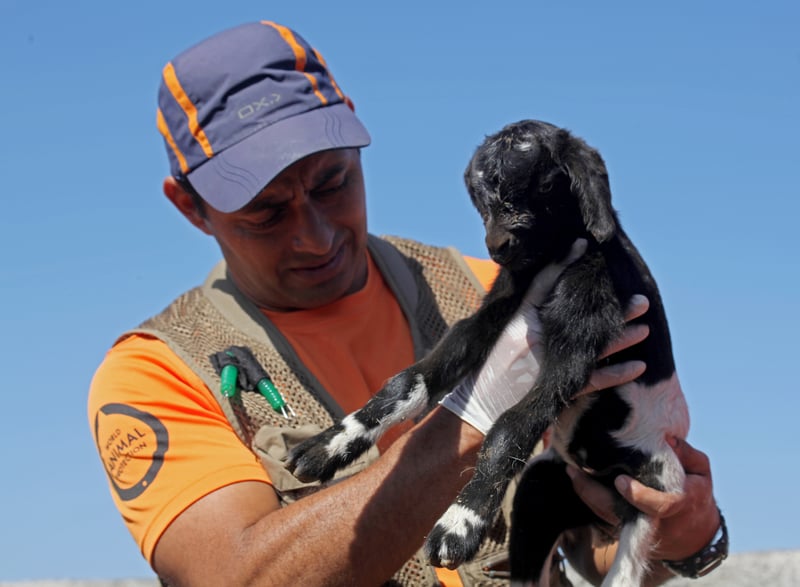
Cabo Verde: Protecting animals and assessing the impacts
News
In the wake of devastating volcanic eruptions, our disaster response team has carried out its assessment of Fogo island’s animals, providing care and treatment where they could.
After a gruelling 8 hour ferry to Fogo Island, our team began its assessments yesterday morning. Along the way they encountered numerous herds of goats, as well as cats, dogs, cattle and chickens – many of which were in need of urgent care.
After stressful relocations from lush pasture to hot, dry and barren conditions – many of the female goats encountered were suffering from some of the worst udder infections (mastitis) we have encountered in recent years. Displaced dogs showed serious injuries from fighting one another as territories became battle grounds. And disease and parasites have taken hold of many herds of cattle. Where we were able to, we fed animals, treated disease and infections, and gave out vitamins for a much needed boost to their immune systems. So far our efforts have benefited over 1,500 animals and given their owners hope for recovery at this time of desperation.
It is during disaster responses that perhaps the most uplifting but also saddening situations are encountered. Yesterday our team came across a 6 hour old goat kid, now alone after the death of her twin and unable to feed as her mother suffered terrible mastitis. We were able to provide treatment for the mother and witness the joy of the kid's first steps, as other members of the herd came to the mother’s aid to feed the new born. We now hope for a long life ahead for the young goat, whose owner called her Sergina, in thanks to our team vet Sergio.
We now face the most difficult task of ‘what next?’. Thousands of animals are in need of urgent care and we must decide what we can do to protect them. As our response in Cabo Verde continues we will keep you updated here and through our social media channels.
Help us protect animals and livelihoods
Thanks to your generosity, we have been able to protect millions of animals in disaster zones.
Keep up to date with our activities on Facebook and Twitter, and learn more about our work responding to natural disasters all over the world.
So far our efforts have benefited over 1,500 animals and given their owners hope for recovery at this time of desperation.